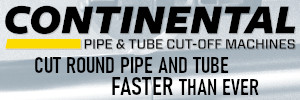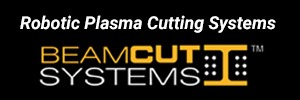Overcoming Obstacles with 3D Vision Technologies
Quickly grabbing and orienting a random part from a bin has never been an easy task for a robot. So it often falls to humans to find and process parts – until now.
Posted: February 20, 2017
Quickly grabbing and orienting a random part from a bin has never been an easy task for a robot. So it often falls to humans to find and process parts. Whether the piece is a plastic handle for a tote or a part for a car or computer, the process is similar. While machine designers have tried to automate a lot of this work, fickle lighting conditions in factories and parts of varying shapes can pose a problem just thorny enough to stump most robots.
Instead of human workers sorting and positioning parts, some manufacturers have relied on mechanical shakers to neatly eject parts one at a time onto a moving line. It’s not a bad solution until the shape and size of a part is changed, which can mean designing a new shaking system at a cost of up to $50,000. To help these shops, new automated systems for part handling are being introduced. Most of these systems are robotic arms equipped with two cameras: one to recognize, locate and pick the part and the second to determine the part’s orientation. These systems are sometimes challenging to program, requiring anywhere from 18 hours to 24 hours to load and program specifications for picking a particular style or shape of part. As parts change, re-programming of the robots is required, and the uneven and changing light conditions can trip up these robots’ ability to locate parts.
3D vision technologies have now come far enough to overcome these obstacles. We’ve teamed up with Canon USA, Inc. (Melville, NY) to combine their 3D recognition hardware and software with our robots and controllers and create a complete system that identifies and works with a wide array of parts. The big difference between this new system vs. other products is that this one is all built upon a single camera that comes with lighting integrated inside the unit, so it’s far easier for the robot to work anywhere it’s needed on a line.
Implementing this robotic system is easy, too, because an integrator doesn’t have to take on any programming or extra work to help the robot define and recognize a part. In other words, there’s no programming at the system level. Instead, this solution automatically matches a pre-loaded 3D CAD model to any part, enabling the robot to pick the part from a bin.
Here’s how it works. Within four hours, an operator can load a CAD model into the system. The camera captures images of the part. The associated software builds a dictionary for recognition and handling of the part or parts, which can be as small as 10 mm by 10 mm (as long as they have distinguishing characteristics). Up to 200 3D CAD models can be loaded for processing, and plant workers can operate this system easily because it’s a Windows®-based app, running on a high performance PC.
Keith Vozel is the product manager of software at Motoman Robotics Division, Yaskawa America, Inc., 100 Automation Way, Miamisburg, OH 45342, 937-847-6200, Fax: 937-847-6277, www.motoman.com.











